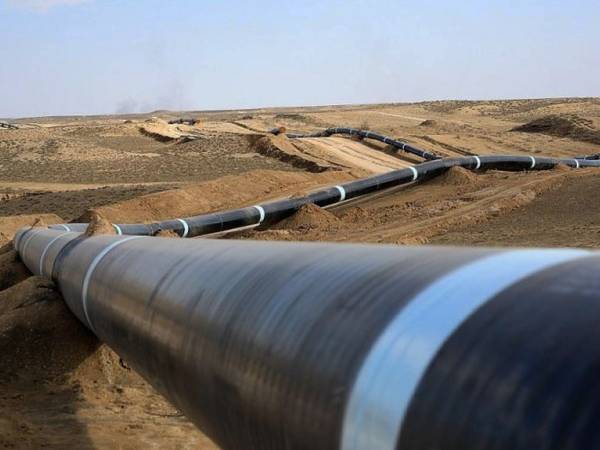Iranian media and pundits say the newly found Chalous gas field in the Caspian Sea could not in time supply gas to Europe, if Russian shipments are sanctioned.
United States and European sanctions on Russia are far milder than against Iran, with oil and gas flowing to the West. While Russian gas exports to Europe via Ukraine continued normally Monday, financial sanctions on Russia and moving the Champions League soccer final have prompted some Iranian commentators to point out that Iran cannot move into the breach if Europe were to bar Russian gas.
Shargh newspaper wrote Monday that it would be wrong to overplay Iran's potential for replacing Russia in European markets. The reformist newspaper informed readers that Iran could not supply LNG (liquefied natural gas) given a lack of infrastructure – although Russian gas is supplied mainly by pipeline.
Iran needs foreign investment and technology to develop gas infrastructure, which has been difficult given years of international and United States sanctions. Iran and Russia hold 37 and 32 trillion cubic metres (tcm) of the world's proven gas reserves, while they respectively produce 250 and 638 billion cubic meters (bcm) of gas annually while respectively consuming 233 and 411 bcm domestically.
One of Tehran’s main aims is talks with world powers over restoring the 2015 nuclear deal - which US President Donald Trump withdrew from in 2018 – is to see lifted draconian US sanctions. Total, the French energy major withdrew from a contract in the South Pars gasfield in 2018due to the US ‘maximum pressure’ sanctions, a contract that included LNG development, which could be important for Tehran’s worldwide exports.
"The truth is we can't do anything in this regard unless we solve our problems with the rest of the world, which requires the restoration of the nuclear deal (JCPOA) and deepening of relations with developed countries," Morteza Behrouzi, energy expert, also told Hamshahri newspaper in September 28.
The Chalous Basin reportedly holds 30 percent of developable natural gas reserves of all Caspian Sea littoral countries and could, following $19 billion in investment and the lifting of US sanctions, be well placed to supply Europe.
Even before the recent Ukraine crisis, some argued Russia has over the years tried to prevent Iran from exporting gas to Europe.
"Russia will not allow Iran to enter the European gas markets that easily and will use every tool at their disposal to prevent Europe from overcoming its dependence on Russian gas," Alireza Soltani, political economist told Entekhab website February 16. "They will prevent [Iran from exporting gas to Europe] but even if it’s to happen, they want it to happen under Russian control."
Iranian officials have long been warning of inadequate natural gas production that cannot keep pace with domestic consumption. Energy consumption is relatively high because of state subsidies to consumers − costing $45 billion a year- that put gasoline, electricity and other fuels at low levels compared to other countries. Iran's oil minister Javad Owji said November that to avoid becoming a net importer, Iran needed $160 billion of investments in its oil and gas industries in the coming years.
